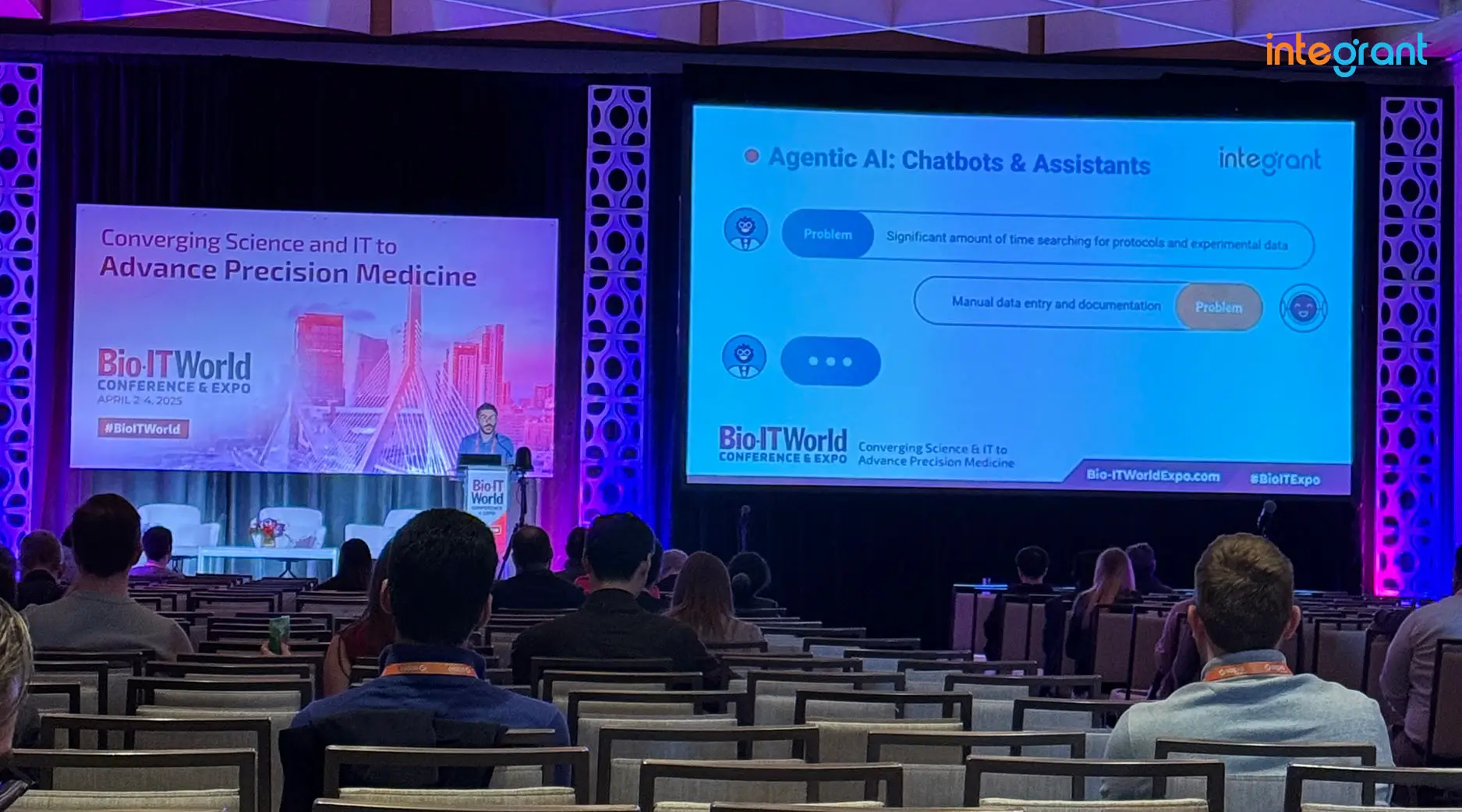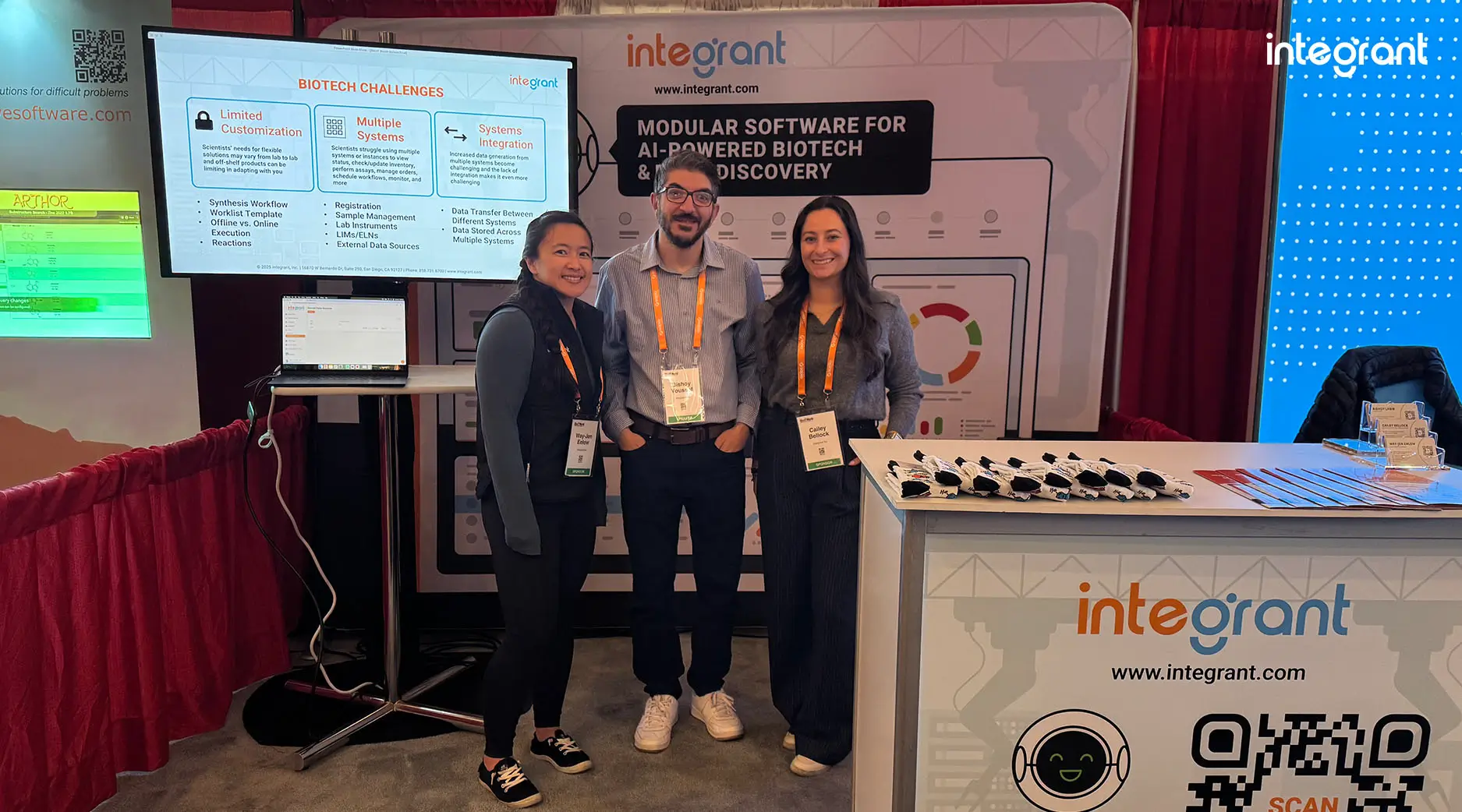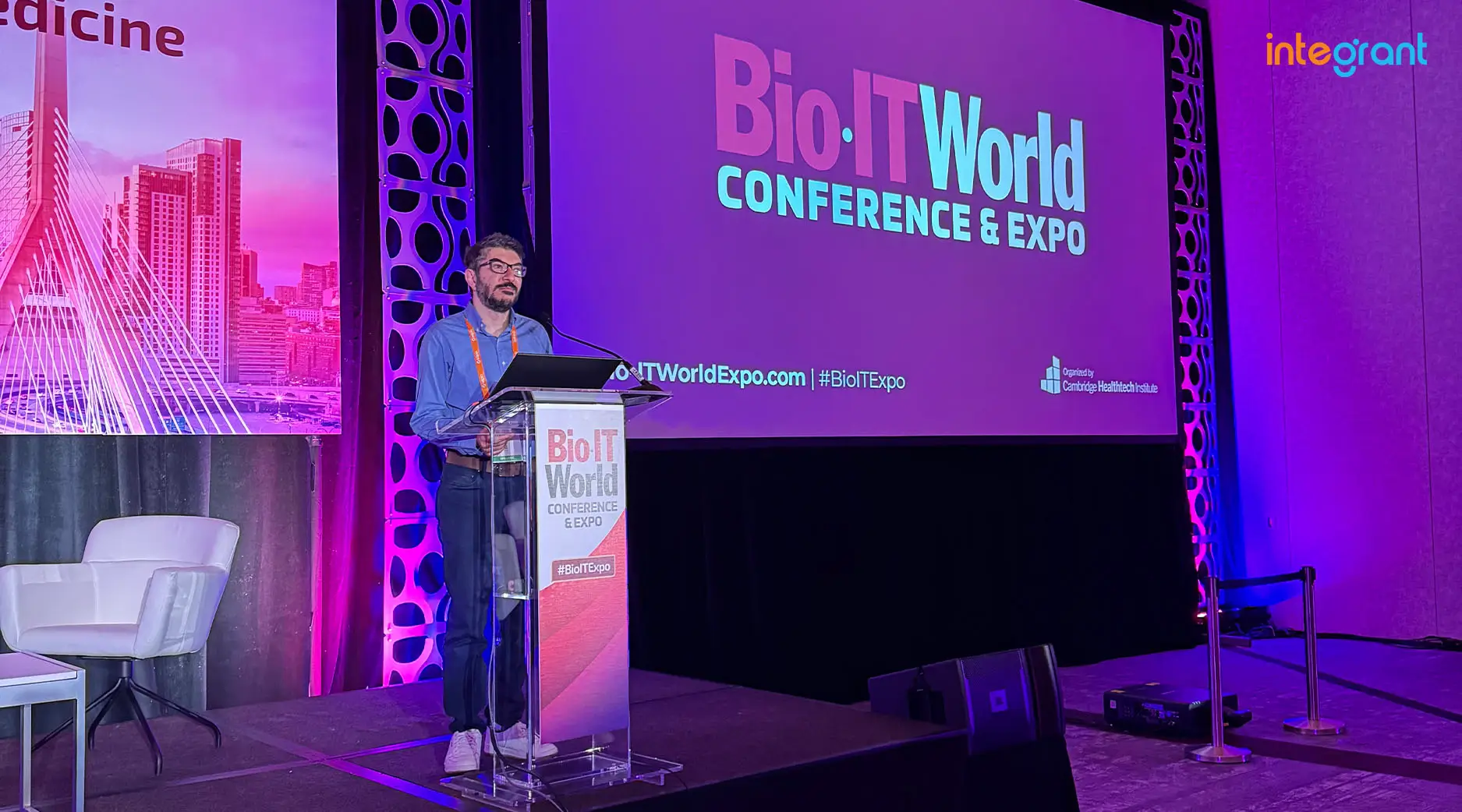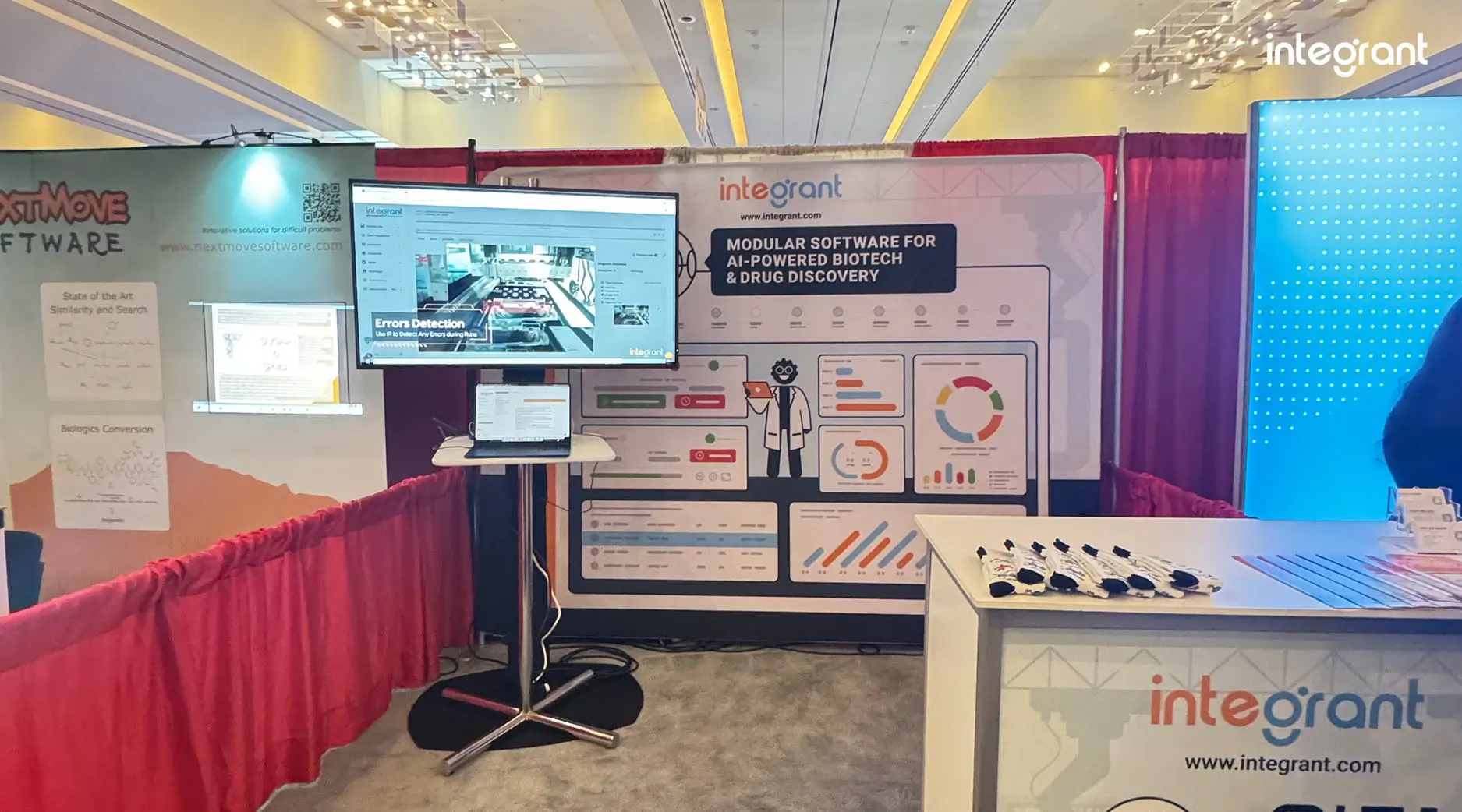Bio-IT World 2025 Recap: Key Insights and Practical Takeaways


AI was everywhere at Bio-IT World 2025—but so were the challenges of making it work at scale. As a sponsor and workshop host, we connected with biotech IT professionals, digital transformation leads, and data science experts to explore both the promise and the reality of innovation in life sciences. From hands-on demos to thoughtful conversations, this year’s event emphasized the need for flexible, integration-ready solutions that meet teams where they are.
What We Heard from the Bio-IT Community
Thank you to everyone who stopped by our booth. We appreciated the thoughtful questions and conversations. Here’s what stood out:
Data remains a core challenge. Many attendees shared struggles with fragmented systems—data split across ELNs, LIMS, CRO platforms, and instruments. Several mentioned active efforts to build data lakes or centralized dashboards to give better visibility into R&D pipelines.
There’s growing demand for integration—not replacement. Attendees emphasized a desire to connect existing systems, not rip and replace. Whether working with Scilligence, Benchling, D360, or other platforms, the consistent theme was: "Make what we already have work better."
AI is of interest—but so are practical tools. While many came to our booth or workshop interested in AI modules like retrosynthesis and chatbot agents, there was also strong interest in non-AI tools like scheduling, dashboard creation, workflow automation, and sample management.
Customizable software is attractive—but people want clarity. Several people asked what “custom” means to us and how we scope proof-of-concepts, integrations, and licensing. Clear, flexible engagement models resonated.
Security and data ownership came up often. Questions around how AI models are trained, how data is secured, and what ownership looks like were key discussion points—especially in conversations with informatics and IT leads.

Workshop Highlights
A big thank you to everyone who attended our workshop: "Scaling AI in Drug Discovery: Modular Tools That Integrate and Scale." In it, our Senior Solutions Architect, Bishoy Youssef, shared three practical AI modules designed to solve specific challenges in biotech:
Retrosynthesis Automation: We showed how our retrosynthesis module helps streamline route planning, reduce cycle time, and assist chemists by proposing synthetic pathways based on a compound’s structure.
AI Assistant and Chatbot Tools: Our agentic AI module enables researchers to query structured or unstructured data across platforms—accelerating document retrieval, answering protocol-related questions, or even aiding with onboarding.
Computer Vision for R&D Labs: We demonstrated how image recognition can be used to identify vial levels, verify label information, or monitor instrument status—helping scientists automate manual visual checks and reduce errors.
Each module sparked thoughtful questions about integration, system compatibility, and real-world implementation timelines, reinforcing that practical deployment—not hype—continues to drive real value. If you missed the talk, the slides are available through the Bio-IT World event app.
Industry Trends We Noticed
Interest in focused, modular tools continues to grow. While not always described as "apps," several attendees expressed a need for targeted, interoperable tools that solve specific problems—like lab scheduling, data querying, or visual dashboards—without requiring full system overhauls. This growing trend reflects a response to the fact that many off-the-shelf systems still leave gaps in critical workflows.
Legacy systems aren’t going anywhere, but expectations are changing. Many attendees were realistic about the systems they have today, but expressed increasing expectations that new software should be lightweight, interoperable, and easily adaptable.
AI implementation is maturing, but infrastructure readiness is key. AI solutions were everywhere at Bio-IT, but there’s a clear recognition that models are only as useful as the data pipelines, integration layers, and governance policies that support them.
Demand is rising for data-centric strategies. From LLMs to FAIR data principles, organizations are shifting toward frameworks that ensure data is not only stored, but structured, accessible, and actionable for downstream use—especially in AI and automation contexts.

Where We Can Help
At Integrant, we build modular, enterprise-grade software that integrates with your existing R&D infrastructure—cloud, on-prem, or hybrid. Our solutions support AI, automate workflows, and bring clarity to fragmented data environments. We help biotech teams streamline operations and scale intelligently through:
Retrosynthesis planning and AI-powered assistant tools
Lab scheduling and monitoring that allows for computer vision, predictive analytics, and more
Order and consumables management with online store integration
Sample and compound tracking systems
Scientific data visualization and centralized dashboards
Custom-fit modules that connect with your ELN, LIMS, or instrument systems
From pilots to scalable production rollouts, our team supports each stage of development with technical depth and a partnership mindset.
Let’s Keep the Conversation Going: If you’re exploring better ways to connect your systems, manage your data, or prepare for scalable AI and automation, we’d love to hear from you. We’re always happy to share lessons learned, compare notes, or brainstorm what’s possible.
Reach out to our team to start a conversation, request a demo, or explore how our modular tools can support your goals.